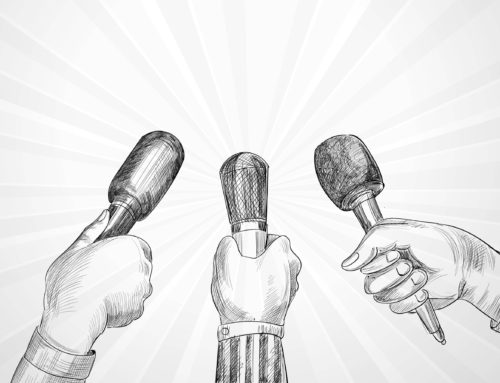
I met Garrett Brumfield, 33, a disability advocate and direct support professional in Roanoke, Va., while curating a list of disability sources for an organization called the Economic Hardship Reporting Project. I was taken by his story, his sense of humor and his commitment to the disability community.
Brumfield launched Overcome Yours in 2014, a platform that both advocates for and empowers other disabled people to tell their stories. He leads motivational talks nationwide focusing on issues including accessibility, with organizations ranging from the Virginia Board for People with Disabilities, the National Walking Summit’s America Walks, and the Association of Programs for Rural Independent Living (APRIL). He’s also an America Walk’s 2023 Walking College mentor.
Brumfield is also a direct support professional working with the nonprofit Virginia Institute of Autism. His next move: Stand-up comedy.
Nice to talk with you, Garrett! Let’s start with Overcome Yours. When did it launch?
It was in 2014, and I was 24. I was working in radio and TV, and my boss told me he found it inspiring and motivational when I spoke to him about my life. He encouraged me to share my story with others.
I thought, “What did I know about being motivational?” But that put me on my own journey of self-acceptance and embracing my disability.
What was it like growing up with cerebral palsy?
I wanted to be just like everybody else. I played sports, learned to drive with adaptive equipment, and went to and graduated from Radford University in Radford, Va. When I applied to school, I wasn’t sure what kind of supports I needed. I quickly realized my biggest struggle was picking up after myself.
After college, I strived to live independently, and have been living on my own since 2016.
I live with my girlfriend now, but hadn’t done much dating That was always a struggle — figuring it out, how to present myself, how to disclose my disability. Letting people in was the biggest thing. I thought, “They probably don’t want to date someone with a disability.” But once I opened up it turned out to be a learning experience for both of us.
So your day job is being a direct support professional in the Virginia Institute of Autism’s Adult Day Program. What do you do there, exactly?
I work on community engagement for adults with various disabilities. We have a space where people can gather for activities, and then we go out into the community several times a day to do different things.
The work is both rewarding and feeds into my advocacy as it helps me understand different people’s needs and how to support them best in different situations. The most important piece of that work for me is seeing individuals grow in new levels of understanding and independence with my help.
And you’re not slowing down — you want to add standup comedy to your repertoire!
That came out of COVID. I got tired of looking at my computer screen! It started as a way to get back on stage because all the motivational work was virtual and I missed being in front of an audience. And, I like making people laugh.
So I went to an open mic and talked about the best and worst places my scooter ever died. I didn’t plan it, just told the story, and it got so many laughs. By the way, I’m finding that a lot of open mic nights, even those that are paid gigs, are in places that aren’t wheelchair accessible.
And with comedy, I don’t need to be an expert, I just need to make people laugh!



